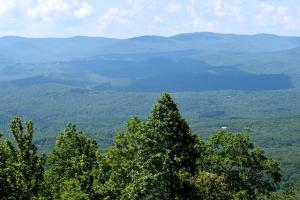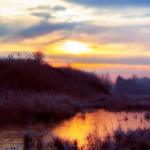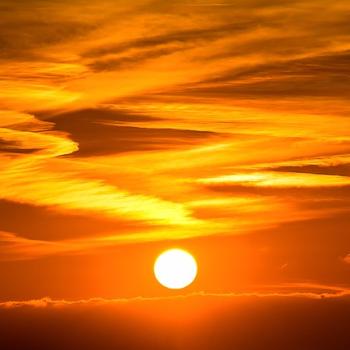
Thank you to the readers who asked if we were okay in the rainfall after Hurricane Helene: we’re fine; it didn’t hit my part of Appalachia at all. All we got was some much needed rain, and I felt guilty.
Appalachia has different regions just like every other part of the world; I live in the very top of Northern Appalachia, across the river from the chimney of West Virginia. That part wasn’t hit at all, though there are a few counties in Southeastern Ohio which had their power knocked out. My friend from Bluefield tells me there’s been some destruction down in the southern part of West Virginia my family used to visit. The very worst of the disaster was far south of me, in North Carolina, Tennessee and Georgia.
If you’re not from Appalachia, I can’t explain how difficult it can be to manage a natural disaster when you’re in the mountains.
A location that’s a few miles away as the crow flies might be an hour away if you actually try driving there. When my cousin got injured at a family reunion down in Pocahontas County, West Virginia, the ambulance took an hour to come all the way from Renick and an hour to get him to the emergency room. And that was when there were roads. The catastrophe down south destroyed the roads.
I’m seeing friends of mine terrified because not only can they not use the phone to see if their families are all right, they can’t physically go there because the roads have been washed away. One friend didn’t know where her parents were or if they had drowned until her parents managed to find a coffee shop that still had satellite internet. They are fine. Many are not.
Another friend was, herself, safe, because their farm is up on a mountain, but she lost her whole garden, her greenhouse, and most of her barn. Her neighbors aren’t nearly so lucky. One house collapsed onto a mother and daughter. Many people in town were killed. There’s no drinking water coming out of the taps. She was able to drive into town today for fuel, and saw houses that had been washed 500 feet downstream. There were lurid empty gaps where she knew people’s trailer homes usually are. It’s terrifying.
This has been an unprecedented disaster, in a part of the country that didn’t have many resources to begin with.
As has been pointed out, the people hundreds of miles inland weren’t ready for a flood and a hurricane; this isn’t supposed to happen there. They were ready for other kinds of trouble. Remember the Texans who didn’t know what to do when there was a sudden polar blast and massive power outages in Texas awhile ago? This is very similar. These people had less than a day’s notice for an environmental event that’s not supposed to happen there, and now they’re trapped with their meager resources gone. It’s important not to fetishize Appalachian poverty, but, well, there’s a lot of poverty. Our infrastructure tends to be decades behind the rest of the country. It’s hard to get back up and running when you didn’t have much to begin with. This crisis is going to be felt for a very, very long time.
I’m grateful that I’m seeing less than the usual number of social media posts from smug armchair liberals from wealthier parts of the country, who think it serves Appalachia right because we’re Trump Country.
That’s not even true anymore: North Carolina and Georgia are swing states. Asheville, North Carolina, is a particularly blue pocket in a purple state, and it’s been nearly obliterated by the flood. But also, there are plenty of people living in the reddest parts of Appalachia who are fighting hard to make things better– just think of the grandmother of the Baker Street Irregulars, for example. Imagine something like this happening to her, or to me, or to Jimmy the Mechanic or to Adrienne. And most importantly, nobody of any political affiliation deserves to suffer like this.
Pray for the people affected by this catastrophe. But don’t just pray, get to work. Demand accountability and action to mitigate climate change. Correct misinformation and victim-blaming where you find it. And if you want to make a donation that will help people on the ground, or if you need resources yourself, here’s a good list of places to start.
Mary Pezzulo is the author of Meditations on the Way of the Cross, The Sorrows and Joys of Mary, and Stumbling into Grace: How We Meet God in Tiny Works of Mercy.













